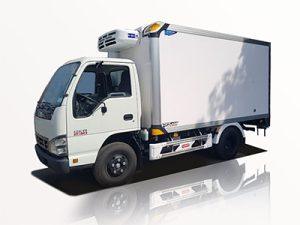Monday to Saturday - 8:00 -17:30
Does Beer Have to Be Refrigerated? Understanding the Best Storage Practices
When it comes to beer, many enthusiasts and casual drinkers alike often wonder: does beer have to be refrigerated? The answer is not as straightforward as one might think. Several factors determine how beer should be stored, including its type, intended consumption timing, and overall quality. This comprehensive guide will delve into the nuances of beer refrigeration, helping you make informed choices to preserve taste and quality.
Understanding Beer: The Basics
What is Beer?
Beer is one of the oldest beverages produced by humans, primarily made from four key ingredients: water, malted grains, hops, and yeast. The brewing process involves fermentation, where yeast converts sugars into alcohol, resulting in a diverse range of flavors and aromas.
Types of Beer
There are many types of beer, each with unique characteristics that influence storage requirements. Here are some of the most popular categories:
- Lagers: These are fermented at low temperatures and usually have a crisp, clean taste.
- Ales: Brewed using top-fermenting yeast at warmer temperatures, ales can have a wide range of flavors.
- Stouts and Porters: Dark beers known for their rich, bitter flavors, often enjoyed at slightly warmer temperatures.
- IPAs (India Pale Ales): Known for their hop-forward flavors, best enjoyed fresh.
- Sours: Fermented with wild yeast and bacteria, these beers can have distinct tart flavors.
The Science Behind Beer Storage
Why Does Temperature Matter?
Temperature significantly affects the taste and quality of beer. Exposure to heat can lead to oxidation, spoilage, and skunky flavors. Therefore, understanding the proper storage temperatures is crucial to preserving your beer’s integrity.
Optimal Storage Temperatures for Different Types of Beer
Different styles of beer have differing ideal storage temperatures:
| Type of Beer | Optimal Storage Temperature (°F) | Notes |
|---|---|---|
| Lagers | 35-45°F | Best served cold; great for refreshing qualities. |
| Ales | 45-55°F | Enhances fruity and complex flavors with slight warming. |
| Stouts and Porters | 50-55°F | Best enjoyed slightly warmer to bring out roasted flavors. |
| IPAs | 40-55°F | Served cold to enhance hop aroma and flavor. |
| Sours | 45-60°F | Slightly warmer to appreciate tartness and complexity. |
Do You Have to Refrigerate Beer?
General Recommendations
While refrigeration is not mandatory for all beers, it is highly recommended for certain styles, particularly those that are hop-forward like IPAs or those that are less stable like sours. Refrigerating beer helps prevent spoilage and maintains flavor integrity.
When Not to Refrigerate Beer
Some beers, especially those that are bottle-conditioned or barrel-aged, can improve with age and may be better kept at slightly warmer, stable temperatures. These beers often have a more complex flavor profile that can evolve over time.
Storing Different Beer Types: Practical Tips
How to Store Lagers and Ales
For pale ales and lagers, it’s best to keep them chilled. Here are some practical storage tips:
- Keep them in a refrigerator until you are ready to serve.
- Store upright to minimize oxidation and contamination.
- Avoid fluctuations in temperature during storage.
Preserving Stouts and Porters
For stouts and porters, follow these tips:
- Store them in a cool, dark place, ideally at temperatures around 50-55°F.
- If you plan to age them, consider a wine fridge for precise temperatures.
- Be cautious about light exposure, as these beers are sensitive to UV rays.
Handling IPAs
IPAs are best enjoyed fresh, so follow these steps:
- Refrigerate as soon as possible after purchase.
- Avoid long-term storage; ideally consume them within a few months.
- When serving, allow them to warm slightly in the glass to maximize flavor.
Storing Sours
Sour beers can be a bit tricky. Here’s how to store them:
- Keep them at a consistent cool temperature; a wine fridge can work well.
- Store them upright to prevent contamination.
- Consider consuming them soon after purchase, as their flavors can change rapidly.
Tips for Maximizing Beer Freshness
Best Practices for Beer Refrigeration
Here are some best practices to ensure your beer remains as fresh as possible:
- Do not freeze beer; freezing can cause the beer to expand and break the bottle or can.
- Avoid excessive light exposure—UV light can cause skunky flavors.
- Allow beer to sit upright in the fridge to minimize sediment disturbance.
Signs of Spoiled Beer
How to Tell if Your Beer is Bad
Knowing when beer has gone bad is essential for enjoying the best drinking experience. Here are some signs:
- Off Smells: If you smell skunk or sour vinegar, it’s likely gone bad.
- Off Taste: Spoiled beer may taste stale, flat, or excessively bitter.
- Changes in Appearance: Look for unusual sediment or floating particles.
Benefits of Proper Beer Storage
Enhanced Flavor Profiles
Proper storage significantly enhances a beer’s flavor. Well-preserved beer undergoes minimal oxidation, maintaining its intended taste profile. Proper temperatures allow the various flavor components to shine through, providing an optimal drinking experience.
Increased Shelf Life
Understanding how to store different types of beer can extend their shelf life. While beers like lagers may last longer in ideal conditions, others like IPAs and sours have strict timelines for peak freshness.
Frequently Asked Questions
1. Is it bad to store beer in a warm place?
Yes, storing beer in a warm place can lead to spoilage and undesirable flavors due to oxidation and light exposure.
2. Can you drink beer past its expiration date?
While beer may not be harmful to drink after its expiration date, it may have lost some flavor and freshness.
3. Do craft beers need to be refrigerated?
Most craft beers, particularly IPAs and sours, should be refrigerated to maintain their flavor and aroma.
4. What happens if you freeze beer?
Freezing beer can cause it to expand, potentially breaking the container and leading to a mess. It can also alter the taste.
5. How long can beer stay unrefrigerated?
This varies by style, but most beers are best kept cold. Lagers and IPAs should not be left out for more than a few hours, while some stouts and certain bottle-conditioned beers can last for a few days.
6. Should I store beer upright or sideways?
Beer should be stored upright to minimize oxidation and contamination, especially for bottles with corks.









